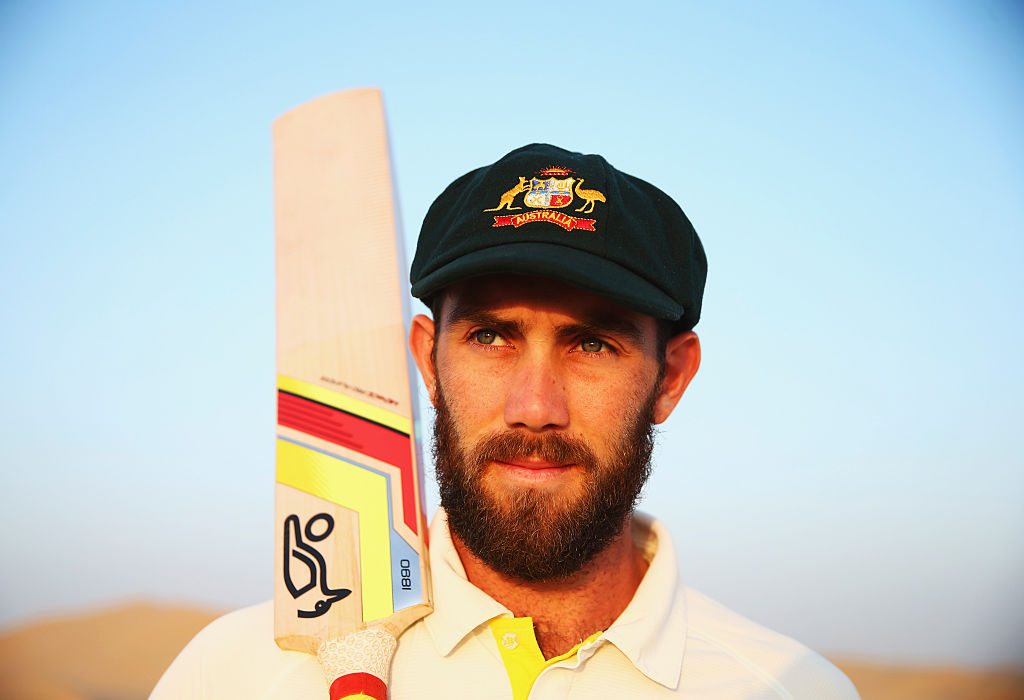

Glenn Maxwell was "shocked and hurt" to be put into a match-fixing documentary which questioned the legitimacy of his first Test century.
Maxwell however has admitted events in the IPL have made even him unsure about their legitamacy.
Al Jazeera aired allegations in May. They immediately picked the match between Australia and India in Ranchi as one of several to be questioned across the world.
In the documentary, a criminal claims that two Australian batsmen, who were left unnamed were paid to bat slowly during a specific time of the match when he makes a phone call from the ground in Ranchi.
Although no names were said, it was clear to see the footage was of Maxwell due to distinguishable features on his playing kit. Maxwell spoke on seeing the footage saying "that was certainly very hard to take".
"I was shocked. I was a bit hurt by it as well," Maxwell told SEN.
"To have these allegations about your involvement in a game where you've only got happy memories about it, great memories … I still remember the feeling after hugging Steve Smith after getting my maiden Test hundred.
"To have that tarnished by these allegations was pretty devastating and obviously there's absolutely no truth to it whatsoever.
"It was 100 per cent unfair, to tarnish one of best moments of my career was pretty brutal.
"The only thing they could have done worse was tarnish that World Cup win (in 2015). They're two of the best moments of my career.
"To say I'd done anything untoward in that game, when I'd just finally got back in the Test side – I'd worked my absolute backside off – to say I'd do anything to ruin that would be absolutely ridiculous."
Cricket Australia chief executive James Sutherland spoke on the situation saying there was no hard evidence to link Australian players to the corruption.
"Cricket Australia and the ICC take a zero-tolerance approach against anyone trying to compromise the integrity of the game," Sutherland said in a statement at the time. "Neither the ICC or Cricket Australia is aware of any credible evidence linking Australian players to corruption in the game."
Maxwell was pre-warned about the footage in the documentary before it was aired but left any legal response in the organisations' hands.
"If (the documentary) mentioned any names, they would be taken down pretty heavily,” Maxwell said.
“They didn't mention any specific names but did basically say the time of the game, which was my involvement.
"You could see it was the gear that I was using, and there wasn't anyone else using that gear in that game. That was certainly very hard to take."
Maxwell said his relationship with cricket's anti-corruption officials was a good one based on the fact that they've had long conversations when he was at the IPL.
"I've been very honest with them (anti-corruption officials) the whole way through with the IPL," said Maxwell.
"If I've ever seen anything untoward I always sat down with them, had a long coffee and just talked about everything to make sure nothing ever, ever comes back to me.
"If there's anything slightly amiss, I always give them a call and make sure they have every bit of evidence they can possible have.
"There's some things you see in the game of cricket where you're always just a little bit unsure.
"All the things you do hear in the game, and when it comes out later on you go, 'Oh, I swear I could have noticed that while I was watching it'.
"It was probably easier when I was captain and I was able to see the way game was going, and the instructions that I was giving players, and the way the game was moving I could actually work it out a little better.
"There wasn't really anything untoward in season I was captain, but you could certainly tell from opposition stuff and that's why I reported certain things."





